Over 30 years of anarchist writing from Ireland listed under hundreds of topics
Struggles against racism - Traveller, migrant, and direct provision perspectives - #DABF 2016 audio
From Trump in the US to Pegida in Europe, the recent resurgence of right-wing and fascist politics challenges all of us to develop stronger and stronger anti-racist social movements. From casual, everyday racism to state policies of border enforcement, racism comes in many forms in Ireland. What are the major issues faced by Travellers, by people living in Direct Provision, and by those fleeing conflicts in Africa and the Middle East? What can we do to advance the struggle against racism in all its forms?
In this panel we brought together a variety of activists from migrant, Traveller, and refugee solidarity networks to discuss experiences of challenging racism in everyday society and in state policy, and to share perspectives on developing solidarity in the struggle for survival, recognition, and respect.
Basic Income - the concept and the problems from an anarchist perspective - Audio from #DABF
In recent years, there has been a growing interest in Basic Income. Basic Income is a payment from the state to every resident on an individual basis, without any means test or work requirement. Is Basic Income a progressive proposal or does it sound too good to be true?
Remembering 1916 Together: Anarchist Perspectives - video from #DABF 2016
A century ago, an armed insurrection took place in Ireland to end British rule and to establish an independent Irish Republic. The 1916 Rising was soon accompanied by major popular revolts against World War One across Europe and later emulated by anti-colonial movements across the Global South.
When it comes to remembering the 1916 Rising, why do conservative politicians and historians want to convince us that it would have been better for us if Pearse and Connolly had stayed at home? Why did the state parade lots of military equipment and personnel down O’Connell Street to mark the centenary? Why did so many people turn out to watch it?
This panel attempts to think through the meaning of 1916 for us today, and the politics at stake in how these events are remembered, forgotten, and mis-remembered.
Experiences of Feminist Struggle - past, present and global - Video from #DABF 2016
This panel on Feminist struggles was recorded at the 2016 Dublin Anarchist Bookfair.
100s protest sentencing of young woman who had an abortion in her home
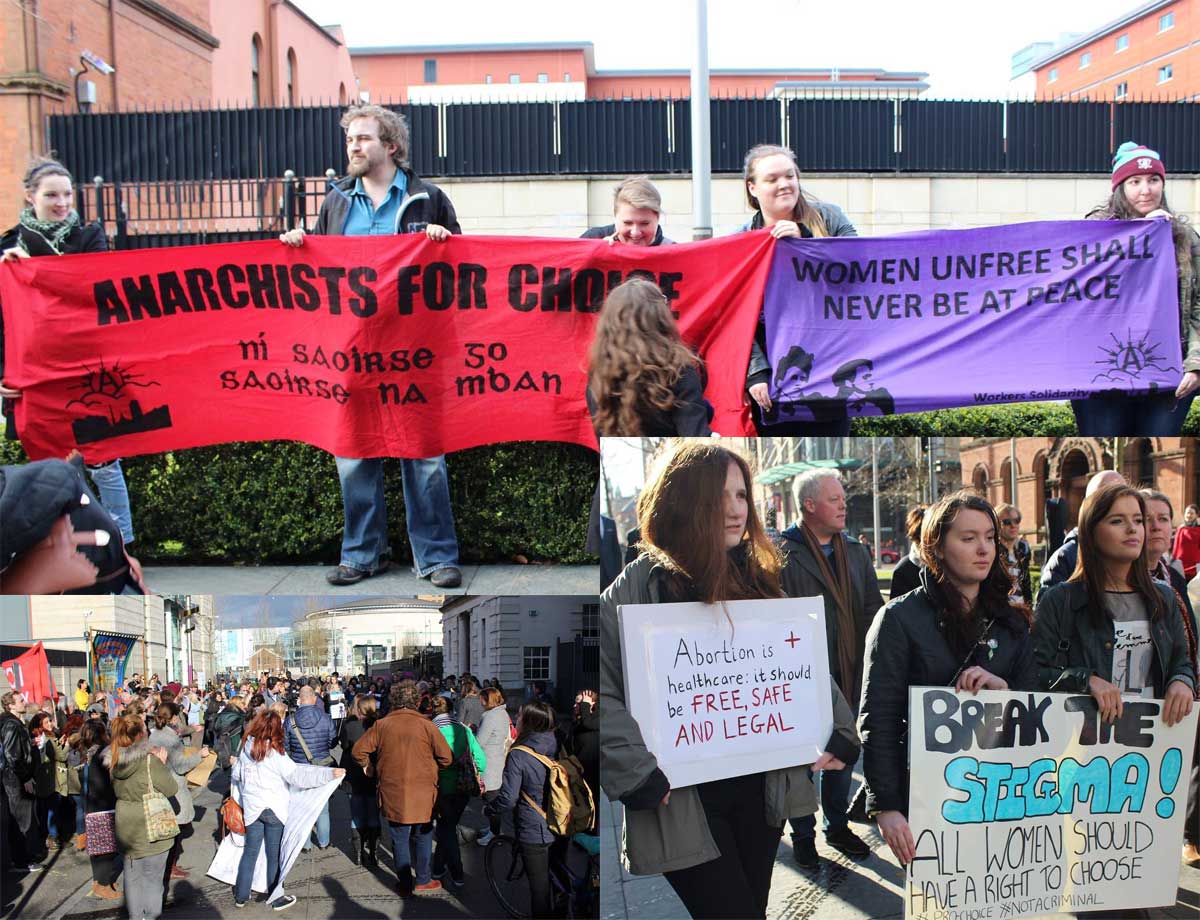 Close to 200 people gathered outside of the Public Prosecution Service and the Courts in Belfast yesterday (April 7) to protest against the decision to give a three month suspended sentence for two years to a young woman who had an abortion in her home.
Close to 200 people gathered outside of the Public Prosecution Service and the Courts in Belfast yesterday (April 7) to protest against the decision to give a three month suspended sentence for two years to a young woman who had an abortion in her home.
The 21-year-old woman tried to raise funds to travel to England so she could have the procedure done legally but when she was unable to come up with the costly funds she was left with no other option but to order abortion pills online like so many other women have been forced to do.
Need Abortion Ireland launched to provide practical help to people who need to access abortion
A new campaign has today (April 7th) been launched which aims to provide practical help to people who need to access abortion and pro-choice reproductive healthcare.
The initiative, Need Abortion Ireland, comes in the wake of a woman being handed a three month suspended sentence for two years in the North for having an abortion in her home, something which would have been legal had she been able to afford an abortion in England.
Women given suspended sentence for using abortion pills in northern Ireland - this law must be destroyed
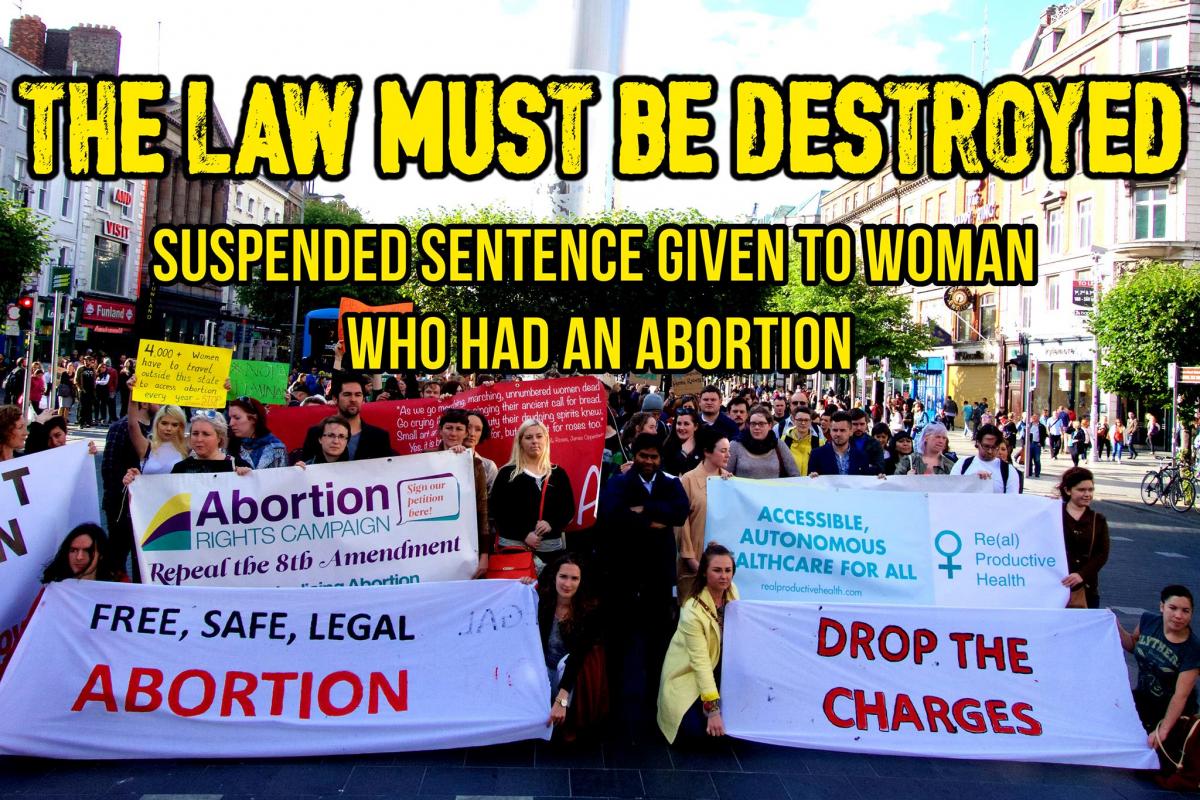 If someone were to tell you that in the modern day UK abortion is illegal you’d probably laugh in their face at such a statement. You’d probably write it off as ridiculous and not worth your time debating considering a simple google search will tell you that abortion has been legal in the UK since 1967. It might then be a surprise for you to hear that just yesterday a woman was handed a three month suspended sentence for two years for having an abortion.
If someone were to tell you that in the modern day UK abortion is illegal you’d probably laugh in their face at such a statement. You’d probably write it off as ridiculous and not worth your time debating considering a simple google search will tell you that abortion has been legal in the UK since 1967. It might then be a surprise for you to hear that just yesterday a woman was handed a three month suspended sentence for two years for having an abortion.
A 21-year-old Co. Down woman who was facing life imprisonment for having an abortion through the use of pills obtained on the internet has been given a suspended sentence. It is understood that after failing to raise the funds to have a legal abortion in England she ordered the drugs, Mifepristone and Misoprostal in order to have the abortion
Fire in the Minds of Irish Men and Irish Women - notes on the meaning of 1916 today
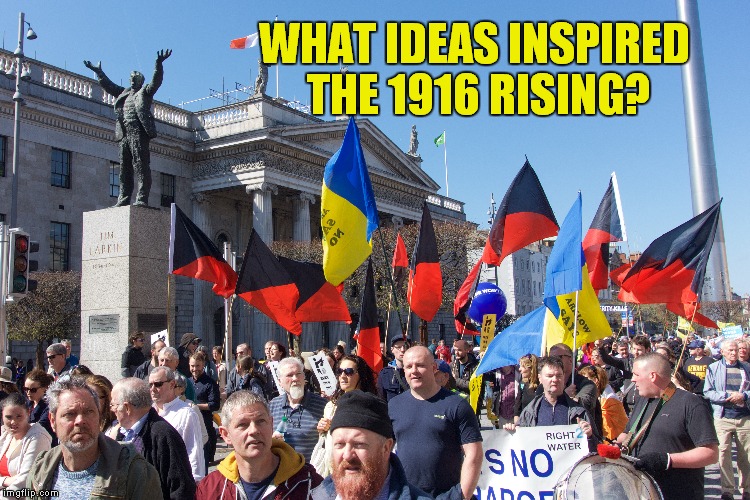 What ideas inspired the men and women who rose up in 1916? How did those ideas fare in the Irish Free State founded in 1922?
What ideas inspired the men and women who rose up in 1916? How did those ideas fare in the Irish Free State founded in 1922?
Feminist unfinished business - 1916-2016 - 10 demands to begin righting Ireland's wrongs
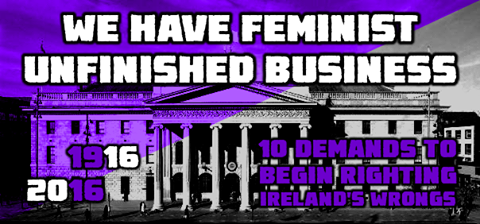 With historic working class centenaries occurring in recent years we have heard a lot about Unfinished Business. This message was strong in 2013 in reference to the 1913 Lockout and the inequality that still prevails in Ireland. Cries of Unfinished Business are once again being proclaimed in this centenary year of the 1916 Rising and it is true, we do have unfinished business.
With historic working class centenaries occurring in recent years we have heard a lot about Unfinished Business. This message was strong in 2013 in reference to the 1913 Lockout and the inequality that still prevails in Ireland. Cries of Unfinished Business are once again being proclaimed in this centenary year of the 1916 Rising and it is true, we do have unfinished business.
We still have bosses and businessmen who could give William Martin Murphy a run for his money. The Republic that the rebels envisioned and enshrined in the proclamation has not been achieved and despite the rhetoric of the YES campaign we do not “cherish the children of the nation equally”, and we have a long way to go to get there, with particular work needed on Ireland’s hatred of women.
Planning to sell off public housing in Derry?
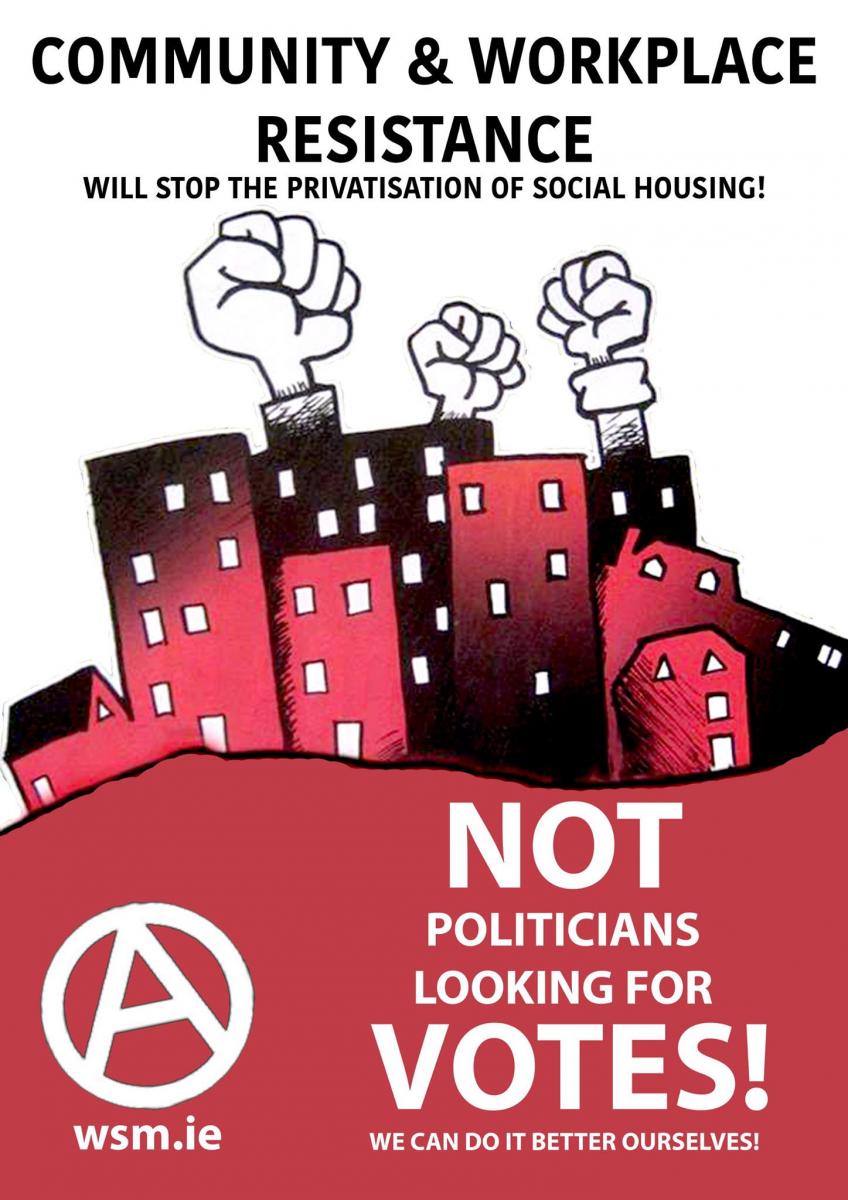 You can always tell when there’s an election just round the corner. Investment announcements, over grinning politicians in the press looking for another go only this time they REALLY promise things will be better. Others hoping to be elected doing all sorts just to get their photograph in the papers, again promising us the moon and the stars. However the gloves are off in Derry’s Bogside as news filters out that a sizeable section of social housing stock, currently owned by the Northern Ireland Housing Executive (NIHE), now plan to offer them up for sale to private sector housing bodies.
You can always tell when there’s an election just round the corner. Investment announcements, over grinning politicians in the press looking for another go only this time they REALLY promise things will be better. Others hoping to be elected doing all sorts just to get their photograph in the papers, again promising us the moon and the stars. However the gloves are off in Derry’s Bogside as news filters out that a sizeable section of social housing stock, currently owned by the Northern Ireland Housing Executive (NIHE), now plan to offer them up for sale to private sector housing bodies.
Several hundred residents now fear that private housing associations in the city will totally transform the way in which they have engaged with the Housing Executive over the past four decades. Particularly when it comes to levels of rent and of course allocation of housing which first gave birth to a new generation of street politics and the Civil Rights Association back in the late sixties.

